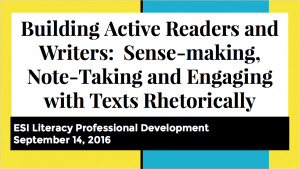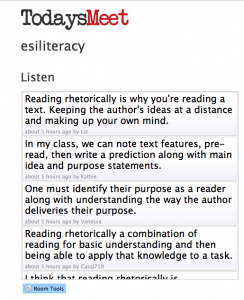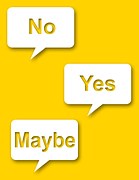
Around 15 years ago, when e-mail was my major form of online communication, I remember sending a somewhat entitled e-mail to my Masters thesis advisor who had generously offered her feedback on a draft I had written. After initially telling her I didn’t need the feedback prior to Spring Break, I had decided I could use the time on my flights to and from my Spring Break destination for revision, and pressed her to leave me the draft before I left for my trip. She ended up leaving the draft for me before my trip, but it changed our relationship which had previously been very strong and left me feeling awkward (to this day) about my behavior.
Five years ago, I posted something that was innocent (and I thought, innocuous) on my Facebook page about students not posting pictures of their drawings on standardized testing (blank) scratch paper to avoid getting in trouble or getting their teachers in trouble. A parent saw the post, reported it to the state department of education who launched an investigation into my administration of the test (which cleared me of wrongdoing because I did nothing wrong), causing unnecessary grief to my students and myself.
I bring up these story because lately I’ve been thinking (perhaps over thinking) about my current online identity and interactions. I’ve also been thinking about the things my students post and the ways they interact with me online.
All this thinking has led me to three questions that I’ve found helpful to answer when I’m about to post something online and that I think might be a helpful guide for my students.
Who is my audience?

Who you’re talking to…

Who actually is reading your post…
So, this question is interesting because in the online world, you often have two audiences: your intended audience (who you want to see your post/ message) and your possible audience (who can actually access your post/ message).
Because of the aforementioned testing incident, I’m hyper-conscious of privacy settings, who can see my stuff and how it might be interpreted which leads me, generally, to under-post, have two twitter accounts (my professional twitter and my more-snarky, but still appropriate, mom and foodie twitter account), keep my Facebook friends as only people I actually know and like and to be careful.
But not everyone is like this.
I was reading through discussion board posts and tweets recently and, in both instances, saw posts/ tweets that were not directed towards me, but that were visible to me. In both cases, I wanted to respond to the posts, to correct the originator about misconceptions or tone. Perhaps, the originators of these posts didn’t consider the public (or semi-public) nature of the posts, or perhaps they didn’t find their post offensive, but who sees what you write is something critical to consider, particularly given the pre-professional teacher preparation that I do. That leads me to question #2…
What’s the worst way this could be interpreted?

What you look like when someone’s misread your post….
This question is critical. So often, on the internet, things are taken out of context. More often than not, people who don’t know you (or don’t know you well) misinterpret your words, tone, intention, etc. to sometimes very real consequences (particularly in the professional world). I’ve done this to Facebook acquaintances and tweeps, despite trying my best to assume positive intent.
So, I’ve started to prepare myself to do the opposite or think about my words, before I post, and the worst possible interpretation. Again, this leads to some reservation in posting, and more careful composition, but I imagine it’s saved me a lot of grief. If I’d had this policy in the two opening incidents, perhaps I wouldn’t have acted in the same way.
Is it necessary to say?

Because there’s just so much blah, blah, blah out there
What I mean by this is: 1) Is it worth the effort to try to explain something that could be possibly misinterpreted or to correct someone who possibly didn’t mean what I thought they meant? 2) Is this issue important enough to possibly generate a conversation beyond my initial statement and to weather the implications and fall-out that the conversation might cause? 3) Is it contributing something to someone in some way? and/or 4) Am I in a position where my attempted contribution may actually impact or influence the audience I’m trying to reach? (Even if this is a possibility, I’ll probably go ahead and post)
There’s not definitive answer on a post’s necessity so I eye-ball it a lot. I’ve stopped engaging in A LOT of political discussions in this election season because honestly, I’m not going to change beliefs on Facebook. I’d rather discuss my disagreements with a friend over a cup of tea, in person, where I can be present to their humanity.
If I go through these three questions and I end up still wanting to post, then I do, and I deal with consequences and possible misconceptions. So, now, I’m going to post this and deal with the rest of the work I have left to do today so I can start my weekend. Happy posting!























